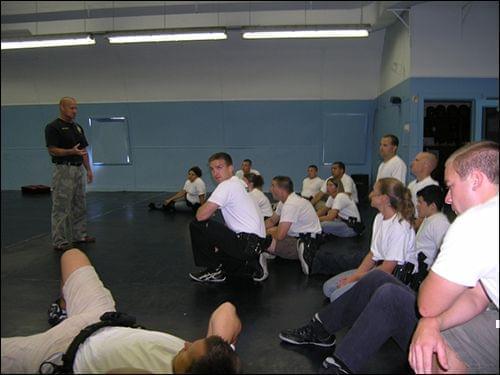Policing In A Post-Ferguson Society

Michael Schlosser oversees a training session for police officers. FBI.gov
Policing has received widespread scrutiny and calls for reform following several fatal shootings of African Americans by police officers.
However, many officers feel the actions of a few have led to a misrepresentation of police officers as a whole.
Michael Schlosser is the Director of the Police Training Institute at the University of Illinois at Urbana-Champaign.
He worked as a police officer for the Rantoul Police Department for twenty years, and is working with the University of Illinois to improve policing practices to bridge communities and law enforcement.
Schlosser became a police officer when he was twenty-one, and said that despite everything that has happened since he wore the badge, he would still be a police officer in 2016.
"In my opinion, it's still one of the most honorable and noble professions that anyone can do," said Schlosser.
But Schlosser has recognized that policing has changed considerably, from advances in technology to different crimes that didn't exist in his years of policing.
"One of the primary changes has been in technology, as in every job. As I think about the evolution of policing, there's computers in cars now, there's tasers, there's new cyber crimes to overcome now. The technology is by far the biggest change."
According to Schlosser, one of the most important changes is how police work has become more professionalized through better training.
"We're doing more training that's helping us interact better with people. De-escalation training is very important, just knowing how to talk to people and knowing how to treat people, these are the most important skills in being a cop."
De-escalation training teaches police officers ways to communicate professionally by first recognizing that someone's anger or frustration stems from the situation, and not to internalize or take what someone is saying personally.
"If you talk to people the right way to begin with, you're going to start getting that voluntary compliance and building a rapport with people. De-escalation is extremely important." Schlosser said.
De-escalation falls under diversity training, which Schlosser has been implementing at the Police Training Institute since 2005. He said the training is necessary in post-Ferguson era policing.
"I think the biggest issue post-Ferguson is to be able to discover new ways to gain the trust of all citizens," said Schlosser.

